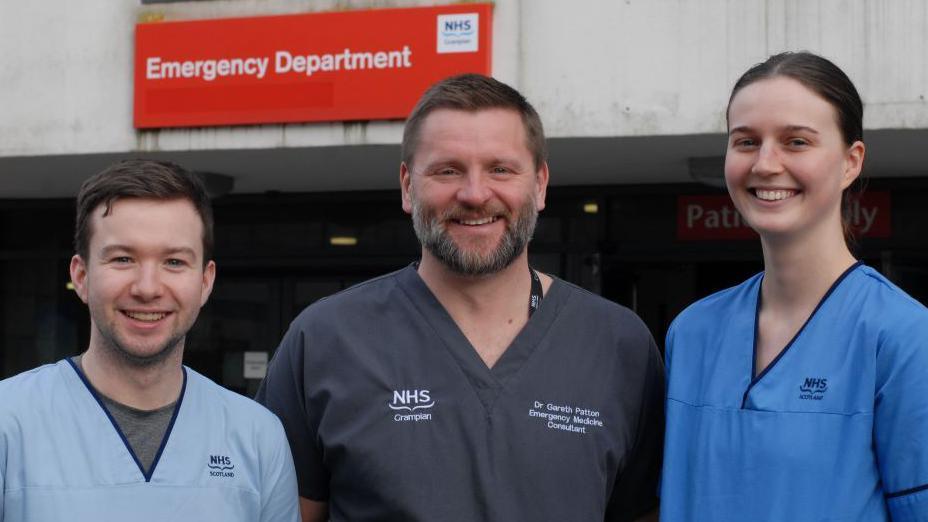NHS bid to speed up diagnosis of blood-borne viruses

The pilot scheme involves NHS Grampian staff
- Published
A pilot scheme aimed at diagnosing blood-borne viruses earlier has been launched by NHS Grampian.
The health board said early detection of Hepatitis B, Hepatitis C and HIV could save lives.
And it hopes the new initiative will improve treatment and outcomes for patients.
In what is described as a Scottish first, all patients who have a blood test performed as part of their assessment at Aberdeen Royal Infirmary’s emergency department will be tested for blood-borne viruses (BBVs).
Patients will be given the opportunity to opt-out of the pilot.
Three-month pilot
Gareth Patton, consultant in emergency medicine, said: “Patients with blood-borne virus infections often have no symptoms, so there are people living with them who aren’t aware that they are infected.
"The only way to find out if someone has a blood-borne virus is to carry out a blood test.
“Across the UK, and the rest of the world, there is ongoing transmission of all three BBVs, often with cases of late diagnosis.
"Our pilot is part of a drive to eliminate Hepatitis C, end new transmissions of HIV and treat people living with Hepatitis B.”
The three-month pilot project is funded by the Scottish government.
Dr Patton added: "The opt-out testing project in our emergency department could have a significant impact for individual patients and the wider community by identifying those unknowingly living with blood-borne viruses in Grampian.
“By identifying patients in this way, we can ensure early follow-up with an appropriate specialist for initiation of treatments available on the NHS and also potentially reduce further spread of the infections.
“We are very excited to be the first board in Scotland to offer this service, and we look forward to evaluating the project."